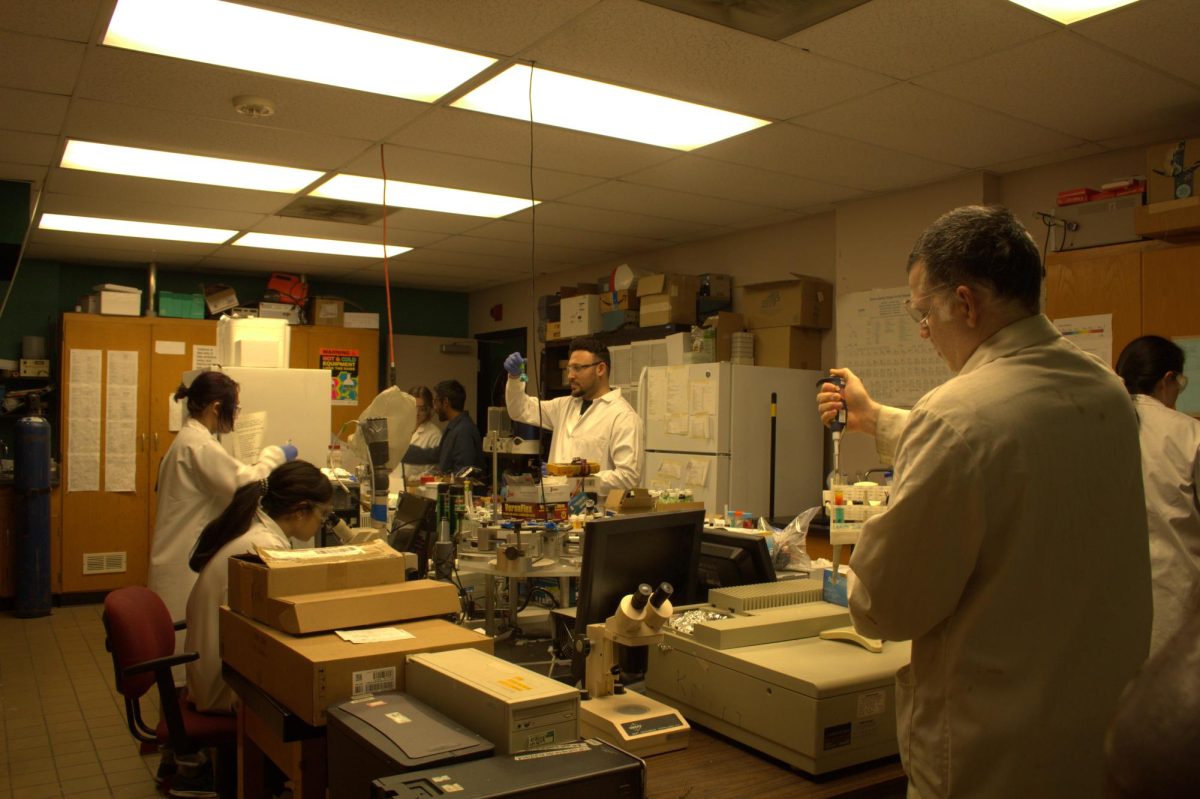Processed meats cause cancer, WHO says; maybe red meat, too
October 26, 2015
America’s love affair with savory, cured meats hit a rough patch Monday when a World Health Organization panel declared that processed meats — like ham, hot dogs, bacon and corned beef — cause cancer in humans.
The WHO’s International Agency for Research on Cancer also determined that red meat, like beef, pork and lamb, probably cause cancer in humans as well.
The panel’s action puts processed meats preserved by curing, smoking or adding preservatives in the highest category of carcinogens, with tobacco and asbestos. Even lean turkey and chicken, which have lower levels of fat than beef and pork, can be dangerous when processed as delicatessen-style fare. The new classification reflects more the mounting evidence of processed meats’ link to cancer than its level of risk.
Advertisement
“For an individual, the risk of developing colorectal cancer because of their consumption of processed meat remains small, but this risk increases with the amount of meat consumed,” said a statement from Dr. Kurt Straif of the WHO agency.
According to the panel, data from 10 studies suggests that every 50 grams of processed meat consumed daily hikes the risk of colorectal cancer by 18 percent. Consumption of processed and red meat has also been linked to death from heart disease, diabetes and other illnesses.
The 22-member International Agency for Research on Cancer team of experts analyzed data from 800-plus studies of cancer risk in humans. More than 700 of the studies involved red meat and more than 400 dealt with processed meat.
While health experts have long warned of the cancer threat posed by diets high in processed and red meats, the IARC report is the most prominent yet to make the connection.
“This could be a game changer,” said Bonnie Liebman, director of nutrition at the Center for Science in the Public Interest. “The IARC is considered the world’s authority on what causes cancer. When IARC speaks, the scientific community listens.”
But will the message resonate with millions of Americans whose diets are built around red and processed meat?
“It’s hard to know whether it will affect what people actually eat,” Liebman said.
Advertisement*
The meat industry is working hard to make sure that it doesn’t.
On Monday, the North American Meat Institute said the IARC findings defy “both common sense and numerous studies that found no link between meat and cancer and other studies that stress the benefits of balanced diets that include meat.”
“It was clear sitting in the IARC meeting that many of the panelists were aiming for a specific result, despite old, weak, inconsistent, self-reported intake data,” said Betsy Booren, the meat institute’s vice president of scientific affairs. “They tortured the data to ensure a specific outcome.”
Dr. Christopher Wild, the director of the International Agency for Research on Cancer, acknowledged that “red meat has nutritional value,” but he maintained that the study data supports “current public health recommendations to limit intake of meat.”
The American Institute for Cancer Research called on Americans in 2011 to avoid processed meat altogether and to eat no more than 18 ounces of red meat a week in order to cut their cancer risk. On Monday, the group hailed the IARC report.
“For years AICR has been recommending that individuals reduce the amount of beef, pork, lamb and other red meats in their diets and avoid processed meats like bacon, sausage and hot dogs,” said Susan Higginbotham, the institute’s vice president of research.
About 34,000 people worldwide die of cancer each year because of diets high in processed meats, according to the Global Burden of Disease Project, an independent research group. It estimates that diets high in red meat account for 50,000 cancer deaths each year worldwide.
That compares to roughly 1 million deaths from smoking, 600,000 from alcohol consumption and some 200,000 because of air pollution, the IARC reported.
The National Institutes of Health’s National Toxicology Program, which assesses cancer hazards, has not looked at red meats or processed meats and neither one has been nominated for review for the report’s next edition, said Megan McSeveney, a spokeswoman for the Food and Drug Administration.
In addition to beef, pork and lamb, red meat includes veal, mutton, horse and goat. Along with ham, hot dogs, bacon and corned beef, processed meats include turkey and chicken cold cuts, sausage, beef jerky, canned meat and meat-based sauces.
While some studies have looked at the cancer risks of various types of red and processed meats, there’s not enough data to say which types of meats are safer than others.
Cooking meats at high temperatures or in direct contact with a flame or a hot surface produces cancerous chemicals. But there’s not enough evidence to tell which is the safest method of cooking, the IARC reported.
The group said there wasn’t enough data to determine how much meat was safe to eat, but that the cancer risk increased with the amount eaten.
(c)2015 McClatchy Washington Bureau
Visit the McClatchy Washington Bureau at www.mcclatchydc.com
Distributed by Tribune Content Agency, LLC.
Advertisement









